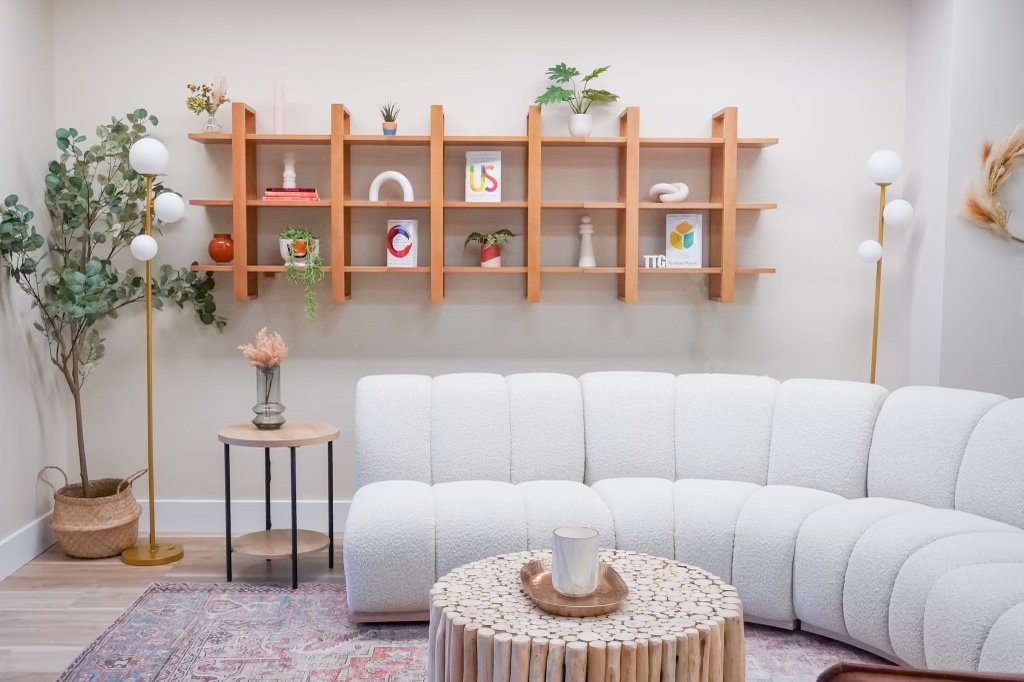Stuck in the Comparison Trap? Here’s How to Break Free
Feel like you're always measuring yourself against others? Learn why comparison is simply human and how to navigate it in a healthier, more self-compassionate way.
You open your phone to scroll for a few minutes and suddenly you're spiraling. Someone just got a promotion. Another person’s house is spotless and filled with natural light. Someone else is on their second vacation this month, and somehow they always look well-rested. Meanwhile, you’re just trying to make it through the day.
Sound familiar? You’re not the only one who’s fallen into the comparison trap. And while it can feel painful and disorienting, it actually makes sense from a psychological and even evolutionary standpoint. Let’s unpack why we do it, how it can impact our mental health, and what to do when it starts to take over.
Why Are We Wired to Compare?
Comparison isn’t a flaw, it’s part of being human.
From an evolutionary standpoint, comparing ourselves to others was once a critical tool for survival. It helped early humans:
Learn from others in the group
Find their place in social hierarchies
Make decisions about safety, resources, and belonging
But while comparison may have helped us survive, it doesn’t always help us thrive in today’s world. Especially in the age of social media, where we’re constantly bombarded with carefully curated snapshots of other people’s lives.
THE TWO TYPES OF COMPARISON:
Understanding the two main types of comparison can help us notice our patterns:
1. Upward Comparison
This is when we compare ourselves to someone we think is “doing better” than us - whether that’s financially, physically, emotionally, or socially.
How it shows up:
“They seem so much further ahead than I am.”
“I wish I had their confidence/their body/their relationship.”
Why it can be harmful:
It often leads to feelings of inadequacy, shame, or a sense that we’re falling behind. We rarely see the full picture, but we assume it’s better than ours.
>>>>>>>>
upward comparison
>>>>>>>> upward comparison
2. Downward Comparison
This is when we compare ourselves to someone we perceive as “worse off.”
How it shows up:
“At least I’m not dealing with that.”
“I should be grateful! I don’t have it that bad.”
Why it can be harmful:
While it may provide a momentary boost, it can disconnect us from empathy and even shame us into silence when we are struggling.
<<<<<<<
downward comparison
<<<<<<< downward comparison
Why Comparing Pain Can Lead to Invalidation
One of the most damaging things comparison can do is convince us that our feelings are invalid.
You might think:
“I shouldn’t feel sad, other people have it worse because they’re dealing with x, y z…”
“Who am I to be upset when they’re going through so much more?”
But grief, pain, and struggle are not competitions. All emotional experiences are valid and everything is relative. Your heartache doesn’t need look a certain way to be worthy of support.
Social Media and the Comparison Trap
Social media is a breeding ground for comparison. We’re often comparing our behind-the-scenes to someone else’s highlight reel and it’s not a fair fight.
Here’s how to be more mindful online:
Curate your feed. Follow people who inspire without triggering feelings of inadequacy.
Notice your body. If you feel tense, anxious, or suddenly “not enough” while scrolling, that’s data. Pause.
Limit exposure. Set gentle time boundaries with apps that tend to send you into a comparison spiral.
Remember: Most people don’t post their hard days, their breakdowns, or their internal struggles. We are typically seeing their end result, not the process they endured to get there.
What Can Comparison Teach Us?
Believe it or not, comparison can also offer insight IF we pause to reflect on what it's pointing to.
Ask yourself:
“What does this person’s life or situation stir in me?”
“Is there something I’m longing for?”
“What unmet need might be surfacing?”
For example: If you feel a pang of envy seeing someone travel often, it might be less about the plane tickets and more about your desire for freedom, adventure, or a break from routine.
Comparison can be a mirror, helping us understand what matters to us, not just what we’re ‘missing.’
Reminder: You’re On Your Own Path
The truth is: there’s no single timeline, no universal measure of success, and no award for doing life the “best.” You are allowed to move at your own pace, with your own needs, challenges, and dreams.
If you’ve been feeling stuck in the comparison trap, we want you to know that change is possible. You can build more self-trust, connect with your own values, and quiet the noise of “shoulds” and “not enoughs.” At The Therapy Group, we help clients untangle these patterns every day with warmth, curiosity, and compassion. You deserve that kind of support, too.
For more on the topic of comparison, check out the ShrinkChicks Podcast episode: The Comparison Trap: Why Do We Do It? hosted by our co-owners.







